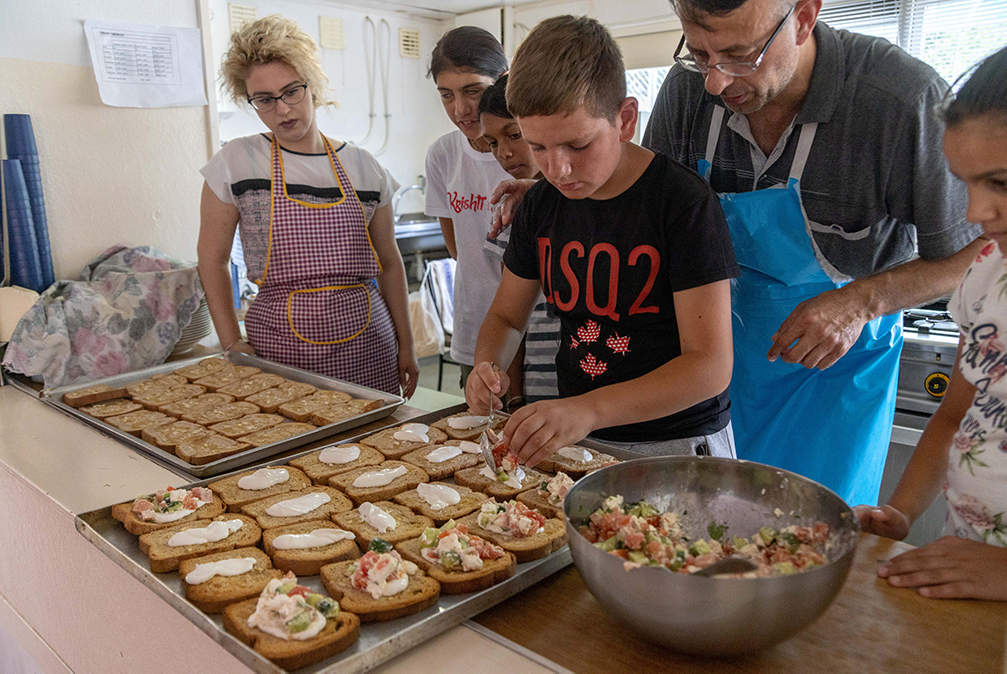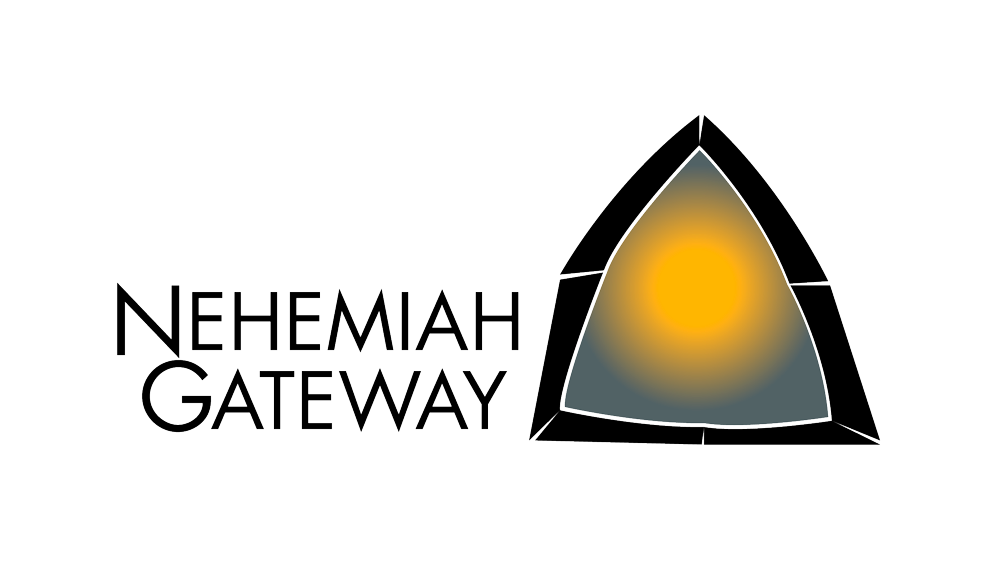Empowering the Amaro Tan Community
August 2022
“They ate my entire stock of french fries in the first hour,” explained Pogradec store owner Lorenc Tona, who is working with Nehemiah Gateway on a pilot voucher system that rewards Amaro Tan students for attendance, homework completion, and participation in class.
The students at Amaro Tan come from families living in extreme poverty. They already get nutritious hot meals every day at school, and their families receive aid parcels from the school several times per year. The french fry experience was remarkable for them in that it was a rare experience in being able to choose to personally buy something in a store. And, for kids of a certain age, what could be better than fried potatoes?
“Some of the older children did choose to use the voucher to help their families with groceries,” adds school director Marin Piqoni, who has run Amaro Tan since 2016. “But the little ones just wanted their fries.”

Marin Piqoni, school director at Amaro Tan.
The team at Amaro Tan faces a broader set of challenges than the average educational program.
The school was launched in 1998 when coworkers at Nehemiah Gateway’s soup kitchen in Pogradec realized that many of the children coming in every day for a meal didn’t know how to read or write. The school started small, run by the group Youth With A Mission with a definite orientation toward rescuing children who were victims of difficult and even dangerous circumstances at home.
Today, many of Amaro Tan’s 130 students per year still come from the marginalized Roma and Balkan Egyptian minority groups, and face discrimination every day. Most parents have very limited education themselves, see little value in education, and are unable to provide help with homework. Often those in the Roma minority move away if they perceive that they might find better circumstances elsewhere. And there is a troubling tendency for girls to be pressured to leave school early to have children and get married.
Children growing up in such challenging circumstances need much more than classrooms and teachers. They need nutritious meals (and the occasional treat of french fries), access to healthcare and social work and hygiene, and equally important, they need mentors and role models.
Roma students at Amaro Tan now have a role model who comes from their own community, Franko Ali.

Franko Ali, social worker at Amaro Tan.
He started as the social worker at Amaro Tan in fall 2021 and comes himself from a Roma family. From 2004-2008, he was a student at Amaro Tan with his two older sisters. He continued on to public school, and subsequently attained a master’s degree in social work at the University of Tirana. When he heard that the position of social worker at Amaro Tan was vacant, he immediately applied.
“Franko is a real down to earth guy,” says Piqoni, the school director. “He really cares about the people of Amaro Tan—the students, their parents, and the soup kitchen clients. He’s always thinking about ways that he can do more to help them.” Franko and his mother both live near the school, and they attend the Roma church down the hill from Amaro Tan. This connection to the community gives Franko real credibility with the parents, and they are very honest (and forceful) with him about their challenges and problems.
Franko is always thinking about ways to help people. Orthodox Easter is a holiday in Albania, and this year he decided to take the soup kitchen clients out for pizza. He knew that otherwise they would spend the holiday sitting at home alone. He also brings fresh energy to engaging Amaro Tan students in volunteer projects around the neighborhood. With careful supervision, older students help the soup kitchen clients at home with cleaning and housework projects.

Dining out: Franko takes the elderly from Amaro Tan’s soup kitchen to eat at a pizzeria.
“I want to help the students to be aware of themselves as participants in their own lives,” he says. “Not as victims, or like wounded puppies somehow to be taken care of. If they have a mind, and skills, and a conscience, they can make something of themselves. I’m always thinking of ways to help them develop that mindset.”
Which brings us back to the french fries.
The idea behind the pilot voucher program, which is being tested on a small scale this year, was to try to introduce the concept of working and earning rewards. From the earliest days of Amaro Tan, the school has provided, and still provides, periodic aid parcels to everyone, free of charge and without any requirement in return. Incentive programs require effort, but they also empower participants with the freedom to choose what to do with those rewards.
“We are liking what we are seeing with this pilot program so far,” says Piqoni. “It would be interesting to see what we could do on a larger scale. We could engage some of the more difficult Amaro Tan parents, who are not going to care about homework just so that their children can eat french fries.”
Franko’s dreams for the Amaro Tan Local Center he runs are even more ambitious. Asked what he would love to see in five years, he describes an Amaro Tan that is twice its current size, with temporary housing for homeless people, expanded training and rehabilitation to help them find jobs, and an even more comprehensive array of supports for the whole family.
Both Franko and Marin have built careers for themselves through hard work. They agree that compassion combined with empowerment can provide incredible results.



At Amaro Tan, children learn life skills, for example at summer school 2022: sewing, computer skills, cooking ... and many more.
They are happy to start small, by offering students the chance to earn treats if they turn their homework in on time. It’s self-determination, one french fry at a time.


